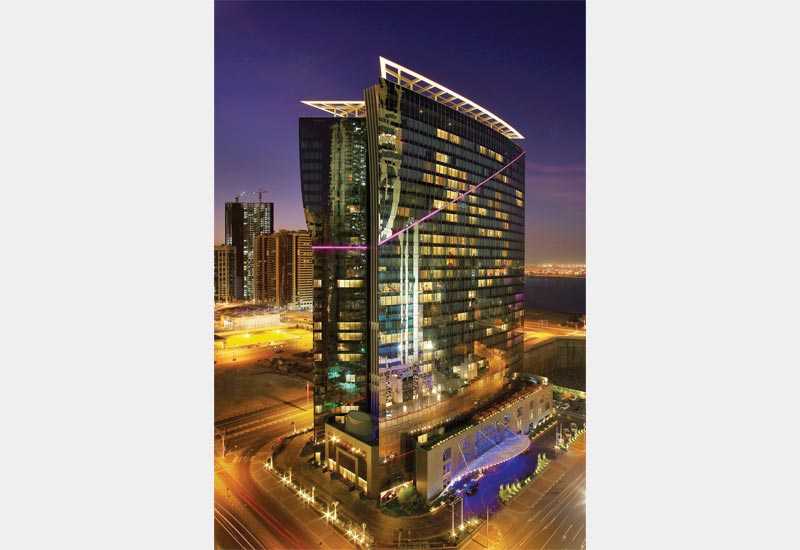What's the code?
Quick Response (QR) codes are another popular method of mobile marketing and are proving serious competition to SMS. Similar to a barcode but able to hold a lot more content, consumers simply scan the code with their device and are directed to additional information, such as a website or social media page.
Many hoteliers have been keen to embrace the codes including W Doha Hotel and Residences which saw an additional 113 page views of its Facebook page in just over six weeks.
Similarly, Jumeirah uses QR codes as part of its strategy, as Kane explains: “QR codes will naturally become a part of print call to action and is the natural bridge between print, outdoor and mobile, online. We see continued growth in this area.”

| Advertisement |
It sounds straightforward enough but a couple of factors need to be considered in order to avoid frustrating the customer, as Parsons outlines: “There are two main elements with QR codes.
It needs to take you to a mobile-friendly end product and there needs to be an explanation of what the code is for. If there’s no explanation, you’re not going to entice that user to scan the code.”
The end goal
With so many options, planning a mobile marketing approach should be relatively easy but like any strategy, will only be effective if a clear objective is defined.
The top priority for most luxury hoteliers is ensuring it fits their brand and is in line with customer expectations. As Kumar advises, the balance between technology and brand alignment is achievable.
“The great thing about a digital channel like the mobile is that it allows for a tremendous degree of personalisation, especially when you talk about mobile marketing in general and things like apps in particular,” says Kumar.
“My recommendation to luxury hotels would be to focus on creating something of lasting value for their guests. Give the customer an app they will really use; make sure that this app helps them simplify their lives by demonstrating how it can save them time or money or both.”
Ritz-Carlton capitalised on exactly this theory when it introduced World Concierge on Foursquare, the popular location-based social networking website for mobile devices. The application locates nearby landmarks and the user ‘checks in’ from a list of venues.
“We launched a campaign called ‘let us stay with you’ and a brand film was developed to show on devices,” says Humler.
“As an extension of that, we launched World Concierge in the mobile space. It was designed to be part of the ‘let us stay with you’ platform to say ‘let us travel with you’ when you’re on the road.
You don’t even need to be staying in Ritz-Carlton — as you’re checking into key landmarks around the globe, the first thing you see is a tip courtesy of the Ritz-Carlton concierge.
There’s no financial return, no call to action to drive booking revenue, but we are simply taking our service and delivering it to someone on their mobile device with a view to deepen the engagement and the relationship, which is our full priority when it comes to our digital strategy.”
Four Seasons, which started its mobile strategy in 2008, invests a lot of time understanding consumer trends in order to drive its initiatives. Robert Simon, director of interactive marketing, observes: “One thing we have become really focused on is techno graphics and that is understanding, by region, what types of devices are in the hands of our consumers and what device mix we are seeing on fourseasons.com.
Globally, 90% of any mobile web session is an Apple-based product with 60% of that being the iPad and 30% of that, the iPhone. For the Middle East, between February 1-12, 2012 the iPad device generated 28,000 page views while Blackberry 9900 generated 114 page views. We love that consumers have made such a clear choice as it makes it easy for us to commit to optimising the service levels and focus on the experience.”
Such statistics reflecting the lean towards tablets could be especially relevant for the luxury hotel sector. Sean Hart, client services director at Ogilvy One explains: “The luxury sector is best experienced on tablet devices due to their rich media interfaces and the fact they have larger screens than your average mobile device.
In addition, luxury consumers spend more time browsing on tablets and immersing themselves in the look and feel.”
Article continues on next page ...









 Search our database of more than 2,700 industry companies
Search our database of more than 2,700 industry companies










Mar 16, 2012 , India
It's true Middleast lags behind, though savvy with technology & latest gadgets, i am sure an offer their way to the newer generation, will start the ball rolling. Secondly hoteliers are more dependent on OTA's and the corporate sector + walkins, basically other than the UAE all other regional tra...